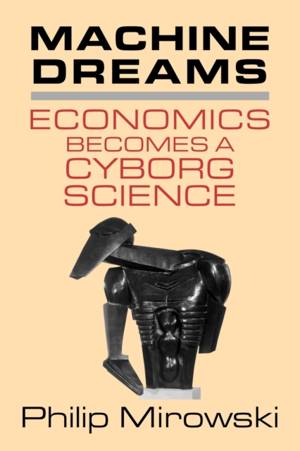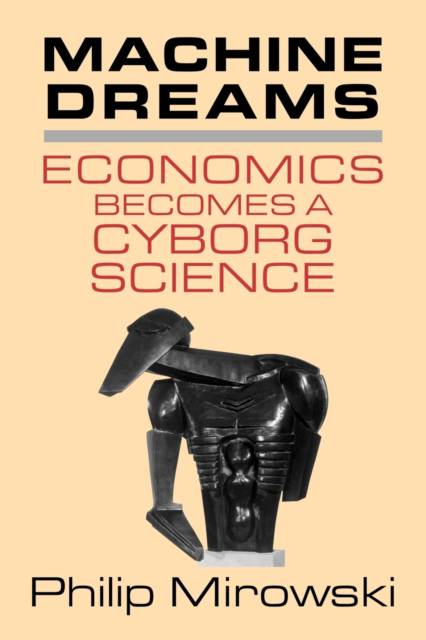
Bedankt voor het vertrouwen het afgelopen jaar! Om jou te bedanken bieden we GRATIS verzending (in België) aan op alles gedurende de hele maand januari.
- Afhalen na 1 uur in een winkel met voorraad
- Gratis thuislevering in België vanaf € 30
- Ruim aanbod met 7 miljoen producten
Bedankt voor het vertrouwen het afgelopen jaar! Om jou te bedanken bieden we GRATIS verzending (in België) aan op alles gedurende de hele maand januari.
- Afhalen na 1 uur in een winkel met voorraad
- Gratis thuislevering in België vanaf € 30
- Ruim aanbod met 7 miljoen producten
Zoeken
€ 79,95
+ 159 punten
Uitvoering
Omschrijving
This is the first cross-over book in the history of science written by an historian of economics, combining a number of disciplinary and stylistic orientations. In it Philip Mirowshki shows how what is conventionally thought to be "history of technology" can be integrated with the history of economic ideas. His analysis combines Cold War history with the history of the postwar economics profession in America and later elsewhere, revealing that the Pax Americana had much to do with the content of such abstruse and formal doctrines such as linear programming and game theory. He links the literature on "cyborg science" found in science studies to economics, an element missing in the literature to date. Mirowski further calls into question the idea that economics has been immune to postmodern currents found in the larger culture, arguing that neoclassical economics has surreptitiously participated in the desconstruction of the integral "Self." Finally, he argues for a different style of economics, an alliance of computational and institutional themes, and challenges the widespread impression that there is nothing else besides American neoclassical economic theory left standing after the demise of Marxism. Philip Mirowski is Carl Koch Professor of Economics and the History and Philosophy of Science, University of Notre Dame. He teaches in both the economics and science studies communities and has written frequently for academic journals. He is also the author of More Heat than Light (Cambridge, 1992) and editor of Natural Images in Economics (Cambridge, 1994) and Science Bought and Sold (University of Chicago, 2001).
Specificaties
Betrokkenen
- Auteur(s):
- Uitgeverij:
Inhoud
- Aantal bladzijden:
- 672
- Taal:
- Engels
Eigenschappen
- Productcode (EAN):
- 9780521775267
- Verschijningsdatum:
- 3/12/2001
- Uitvoering:
- Paperback
- Formaat:
- Trade paperback (VS)
- Afmetingen:
- 155 mm x 229 mm
- Gewicht:
- 993 g

Alleen bij Standaard Boekhandel
+ 159 punten op je klantenkaart van Standaard Boekhandel
Beoordelingen
We publiceren alleen reviews die voldoen aan de voorwaarden voor reviews. Bekijk onze voorwaarden voor reviews.









